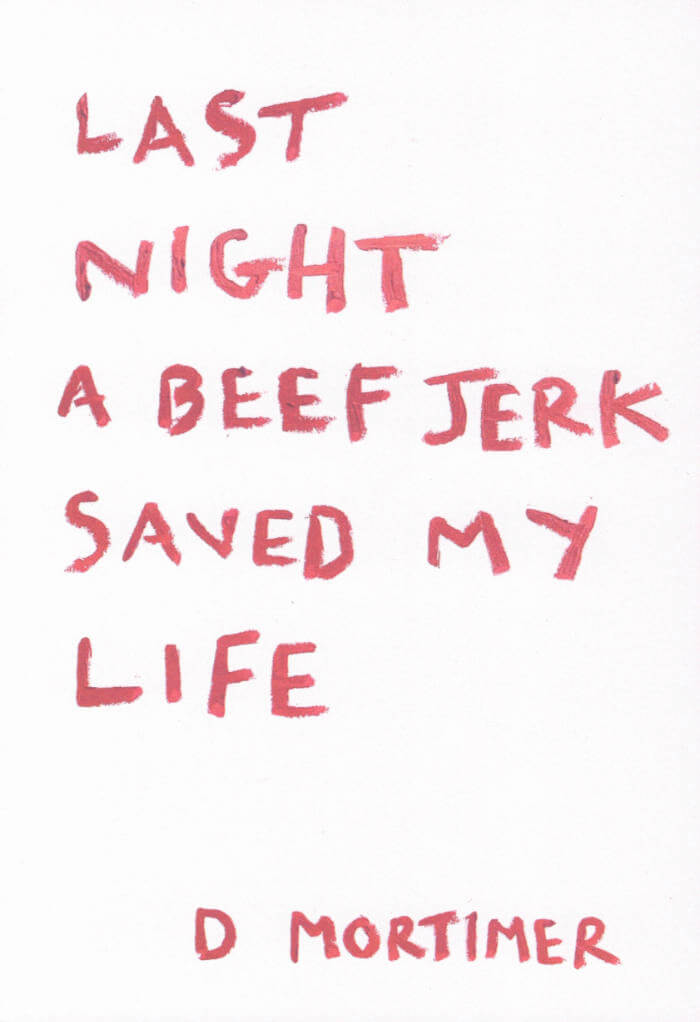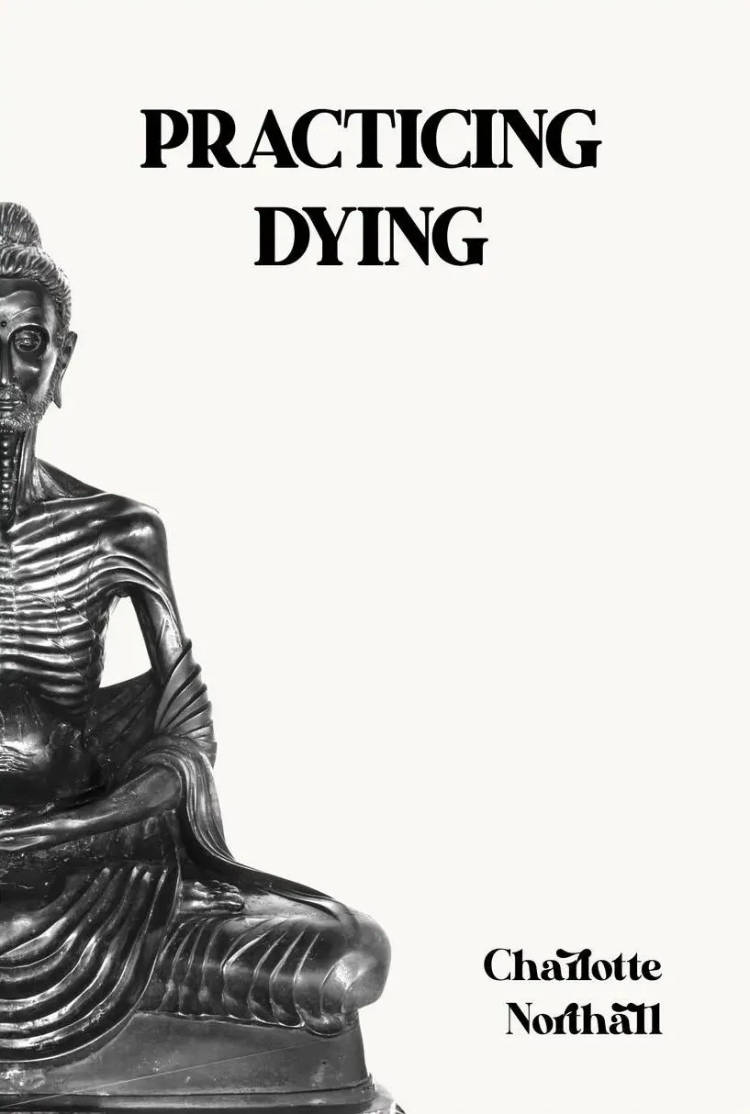
Last Night A Beef Jerk Saved My Life
'Mortimer is one of the most talented writers of our generation and their debut collection proves this. Part essay, part poem, part memoir and part SOS, Last Night a Beef Jerk Saved My Life navigates its thematic scope—ranging from transness, queerness and naming to loving and losing—with sensitivity, insight, humour and bravado. Best thing I read this year.' - Isabel Waidner
'Last Night a Beef Jerk Saved My Life is a wonderful and thoughtful reflection on love and beauty and bodies and music and memories, and on the constellations of small things that make up modern queer life.' - Huw Lemmey
D Mortimer is a writer from London focussed on trans crip narratives. Their work (essays, poetry, prose, creative-criticism) has appeared in Granta and been performed at the Institute of Contemporary Art in London (Queers Read This, The Kathy Acker Reading Group). Their short story ‘Supermarket Revelations’ was published in Liberating the Canon: An Anthology of Innovative Fiction (ed. Waidner, Dostoyevsky Wannabe: 2018) and a poem-essay, 'How To Draw Hands', was published by Warm Yourself by My Trash Fire in 2020.







